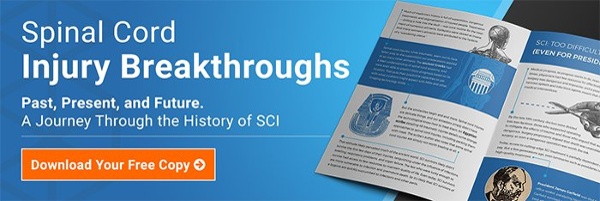Getting an Exoskeleton Approved for Home Use
A lot has changed in a beautiful upward trajectory when it comes to the technology available for people with spinal cord injuries. All of the technology that goes into an exoskeleton for example, the tiny motors and sensors, have become immensely tinier and smarter in the last 10 to 15 years, allowing exoskeletons to finally be available for people with spinal cord injuries.
In 2014, the entire landscape changed when the FDA approved Rewalk’s $77,000 exoskeleton. Usually, FDA approval means insurance companies will be more apt to pay for/approve the technology, but in this case - four years since FDA approval - only 30 of their exoskeletons have been approved by different health insurance companies across the US. Why is this?
Most of the people who’ve had exoskeletons approved have spinal cord injuries of course, but they also have private insurance, typically workers' compensation or auto insurance. In one instance for example, Rusty Chmelovsky, a paraplegic from NY state, had the New York State Insurance Fund worker’s compensation pay for his $95,000 robotic system since he was a union construction worker at the time of his injury.
Military veterans also have a better opportunity to have an exoskeleton approved by their health insurance. In 2016, the Federal government purchased 20 exoskeletons, and in 2017 they purchased 28 more, all for vets with SCI. All of this goodwill towards exoskeletons is because of the FDA approval in 2014, but also because of independent insurance review boards that have looked at various studies that do certifiably prove exoskeletons improve the health of people with spinal cord injuries.
Anyone living with a spinal cord injury could already have told them this, but unfortunately people with spinal cord injuries must also play the health insurance approval game, and proving that an exoskeleton can provide immense health benefits is critical. There was one more huge addition to the approval category in 2016 - a personal insurance company approved a ReWalk exoskeleton for a surgeon who worked 11 hours a day in the northwest region of the USA. He was initially denied, but an independent insurance review board found that the exoskeleton would help him with his job and his long-term health. Many people are hoping that this case (the insurance company is unnamed) will set a precedent for future cases, therefore allowing more exoskeletons to be approved by personal insurance companies. Many people, however, are running into denial letters by their insurance companies.
We firmly believe that the landscape is changing and as the years go on, more insurance companies will be forced to cover them, especially as the evidence begins to be mount that they can change someone’s life in a massive way, saving them money. Unfortunately there are too many loopholes in the system now that allow insurance companies to claim certain untruths in their denial letters, such as an exoskeleton being unsafe in case of it tipping over.
When looking at other people's insurance company experiences, it seems the best thing to do is to continually ask for an exoskeleton, even after you receive rejection letter, and again and again. Eventually...they may break. In the meantime, it is a smart move to be an advocate for yourself. This starts with reigniting the approval process, and getting a letter of medical necessity from your physician.
If you have a physician that is on your side and understands this unjust battle, hopefully they will keep sending the necessary paperwork into your insurance company as needed, as you work on them over the months and possibly years, to get the exoskeleton you deserve.
And if you have a spinal cord injury and really want a ReWalk exoskeleton, the company will also work on your behalf to help you get an approval letter from your insurance company. Contact them via their site and let them know your story. They will also send you all of the information that you need to get an exoskeleton approved without their direct help.
Have you tried to get an exoskeleton approved? How did it go?
Stay Updated on Advancements On Traumatic Brain &
Spinal Cord Injuries
About the Author





